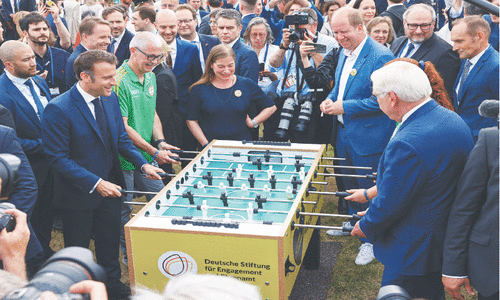Moscow, Oct 21: Russian authorities are moving to expand surveillance of the Internet by requiring service providers to store all traffic temporarily and make it available to the top domestic intelligence agency.
Under an order drafted by the Communications Ministry, providers would have to install equipment that would record and save all internet traffic for at least 12 hours and grant the security services exclusive access to the data.
President Vladimir Putin has tightened his grip over Russia since his election to a third term in March 2012 amid a wave of opposition protests, and security is being stepped up further before the Winter Olympics in Sochi.
The draft order, made public on Monday, is likely to deepen concerns over tighter surveillance of the Internet, where debate is much freer than in Russia’s conventional media and which security officials have said should be better controlled.
Russia drew global attention concerning a similar spying programme in the United States and Britain after granting former US intelligence agency contractor Edward Snowden temporary asylum.
Snowden’s disclosures of sweeping electronic surveillance by the US National Security Agency started an international debate about how much governments should be able to spy on their own citizens.
The Kommersant daily reported that the Russian order had been drafted with the help of the Federal Security Service (FSB), the successor to the Soviet-era KGB spy agency. It would take effect in July if it receives final government approval.
If implemented as proposed, the order would require the FSB to have access for 12 hours to stored data, including phone numbers, IP addresses, account names, social network activity and e-mail addresses.
This would expand the scope of the FSB’s existing access to electronic communications, and be provided by - but not shared with - mobile network operators and internet service providers. Kommersant cited a letter sent by Vimpelcom to the Ministry of Communications, in which the operator of Russia’s No. 3 mobile phone network questions the legality and constitutionality of the draft order.
The Ministry of Communications said in written response that the measures were needed to protect citizens against “criminals and terrorists”. Vimpelcom declined to comment on the letter, which points out that in Russia a court order is required for the collection and release of personal information to the security authorities.—Reuters













































Dear visitor, the comments section is undergoing an overhaul and will return soon.